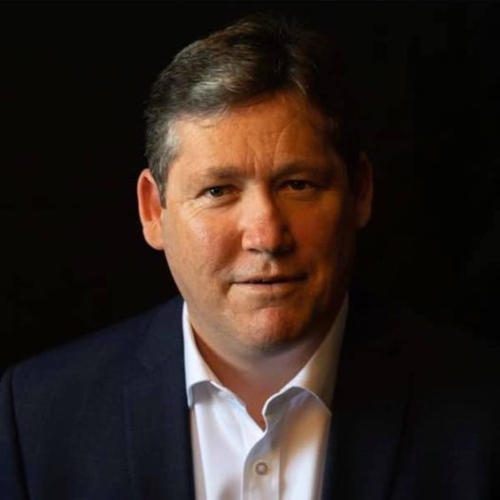Townsville Community Law Principal Solicitor Bill Mitchell OAM will always put his hand up for justice and stand up for human rights.
And Bill is known as someone who is making a difference, having acted and advised on many human rights issues over the years.
It is currently Human Rights Week (1-10 December) which culminates on Human Rights Day.
Human Rights Day 2023 also marks the 75th anniversary of the Universal Declaration of Human Rights. This important document marked a milestone in international human rights recognition and paved the way for further legislation including Queensland’s own Human Rights Act 2019.
The Queensland Human Rights Commission has chosen this year’s theme as Universal means Everyone.
And Bill is someone focused on achieving this goal. He was awarded the Australian Human Rights Commission Law Award in 2008 for his work in promoting and advancing human rights.
Bill has served on several Queensland Law Society Committees and was awarded a Medal of the Order of Australia in 2020 for service to the Law in Queensland.
He kindly found time to discuss the topic with Proctor in this special week.
What sparked your interest in human rights?
“I grew up in North Queensland and began to study towards a law degree in 1988. I was strongly influenced by the revelations of political corruption within the Bjelke-Petersen government. Queensland’s political history had included significant overreach of police powers and corruption within government agencies and the electoral system. The depth of this corruption was identified by media reporting in the late 1980s, and included the Four Corners expose The Moonlight State and investigative reporting by the Courier Mail’s Phil Dickie.
“In my first years of university, I closely followed the unravelling of Queensland’s historical corruption through the Fitzgerald Inquiry and the subsequent law reform that flowed from Fitzgerald ‘s recommendations.
“These included new laws on critical areas of accountability such as public corruption, judicial review, freedom of information, electoral oversight, and anti-discrimination among many others. I also studied the historic Mabo decision during my second year. It would be fair to say that my undergraduate education was suffused with human rights at every turn.
“In 1992 I moved to Brisbane to undertake practical legal training at QUT and during that time I undertook a placement at the Welfare Rights Centre in Brisbane’s Fortitude Valley.
“This placement was a defining experience for me and consolidated my interest in working in the access to justice sector. I was exposed to homelessness and poverty, but also to the opportunity to address causes and consequences of poverty through access to the legal system.
“I was fortunate to be admitted by Justice Fitzgerald at the end of1992 in the Supreme Court in Brisbane where he described the new legal landscape and professional obligations that we, as new practitioners, would inherit.
“I moved back to Townsville in 1993 to take up a position with Townsville Community Legal Service, which involved establishing a welfare rights service in Townsville to assist people living in poverty with legal issues such as access to income support payments, residential tenancy, disability rights and other related areas of public law.
“I was very lucky to work under Jim Gibney (the then Principal at TCLS) who was a fantastic role model for what a community lawyer could achieve through the application of law for those who didn’t ordinarily have the benefit of our legal system. The rest, as they say, is history!”
Why did you decide to become a member of the QLS HR and Public Law Committee?
“Being a part of Queensland Law Society committees is an excellent way to contribute to the education of the legal profession more broadly, and to be involved in legal and policy reform through the various consultations that committees undertake in scrutinising the impacts of proposed laws and structural legal changes.
“I have been involved in four QLS committees over my career and each of those has engaged in fierce policy advocacy to parliament, government, and other institutions.
“Despite the public’s view of lawyers, Law Society committees are often at the frontline of advocating for the rule of law to be applied fairly and without adverse or unintended consequences for members of the community.
“Law Society committees bring together experts from across the profession, including private and public lawyers, who give the society independent and unfettered advice about the possible impacts of legislation and policy reforms.
“While not always successful in their advocacy, the work of committees often leads to amendments or changes that remove, soften, or ameliorate the harsh impacts of the law. I highly recommend joining a committee as a way of giving back to the community and the profession through the Society’s advocacy role.”
Seventy-five years after the signing of the Universal Declaration of Human Rights, what changes have you seen in your sphere?
“This landmark statement of the world community was a direct response to the atrocities of the Second World War and led to the proliferation of human rights treaties, the extent of which continues to be debated today.
“The Universal Declaration was followed by the twin covenants on civil and political rights and on economic, social, and cultural rights. It was also followed by specific treaties in respect of indigenous persons, discrimination against women, the rights of children, and the rights of persons with disabilities.
“Each of these treaties has had a significant impact in shaping Australia’s domestic legal landscape including national and state laws. While governments may be slow to embed international human rights law into domestic legislation, many significant changes have flowed directly from our international obligations under human rights laws.”
What more needs to be done?
“Australia remains an outlier as one of the few modern stable democracies without a national Human Rights Act. The Federal Parliament is considering this issue at present and there is a real urgency to develop a contemporary framework to ensure that all Australians are guaranteed the human rights set out in the various treaties to which Australia is signatory.
“At this point in time only three jurisdictions, the Australian Capital Territory, Victoria, and Queensland have human rights acts. This means the question of whether you have human rights depends entirely on where you are.
“Further, the question what human rights you are guaranteed depends entirely on which formulation your jurisdiction has enacted. Queensland arguably has the best model at this point in time. Even Queensland’s Human Rights Act contains limited economic and social rights, protecting the right to education and the right to health services.
“A second critical issue is the absence of a human rights convention applying to us as we age, and in older age. The world’s demography is getting older and with that change comes the urgent need for a normative framework such as a convention to address the impacts of ageism and negative social constructions of older persons. Civil society continues to urge the Australian government to support a new convention on the rights of all the persons, given we will all be older one day.”















Share this article